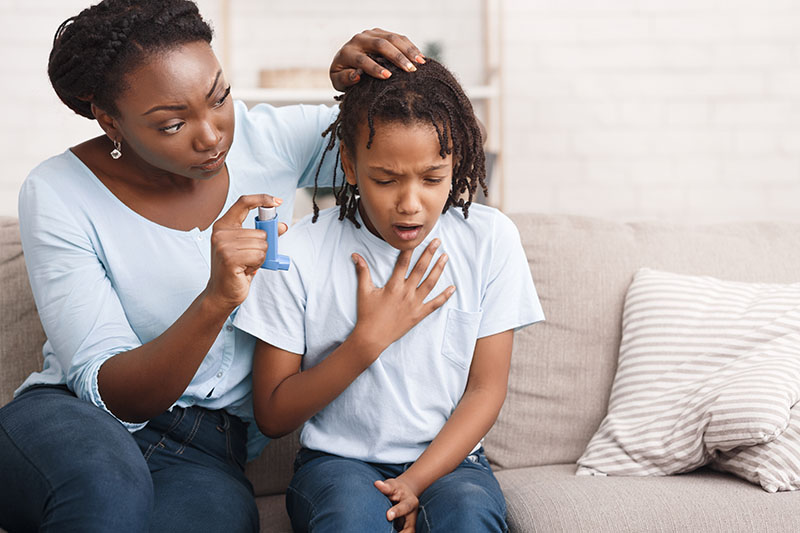
Harris County Public Health Offers Ways to Take Control of Your Asthma and Allergies During This Peak Season
For almost 40 years, the Asthma and Allergy Foundation of America (AAFA) has declared May as National Asthma and Allergy Awareness Month. It is a time to recognize the impact of asthma and allergies on individuals and families across the country. Harris County Public Health (HCPH) aims to educate its residents about these conditions, triggers, and treatments, to help people with asthma and allergies better manage their symptoms.
According to the Centers for Disease Control and Prevention (CDC), more than 25 million Americans suffer from asthma and more than 50 million Americans suffer from allergies. Allergies and asthma are the leading chronic conditions among children in the United States, with asthma affecting 6.2 million children and allergies affecting 10 million children, according to the AAFA.
Asthma is a chronic lung disease that affects people of all ages and can cause breathing difficulties, coughing, wheezing, and chest tightness. Asthma attacks can be mild, moderate, serious, or even life-threatening.
On the other hand, allergies are when your immune system reacts to a foreign substance that has entered your body, called an allergen. An allergic reaction can be triggered by something you eat, breathe, touch, or inject into your body. Allergy symptoms can include sneezing, runny nose, and itchy or watery eyes. There are various forms including indoor and outdoor, seasonal, skin, food, drug, latex, and insect allergies. There is no cure for allergies, but they can be managed with prevention and treatment.
While asthma and allergies are different conditions, they are often related, as allergens can trigger asthma symptoms. About 70 percent of people with asthma also have allergies.
The CDC recommends the following measures to help manage asthma and allergy symptoms:
- Avoid triggers: Identify and avoid triggers that worsen your symptoms, such as pollen, dust, or pet dander.
- Take medications as prescribed: If you have asthma or allergies, it is important to take your medications as prescribed by your healthcare provider to help control your symptoms.
- Create an asthma or allergy action plan: Work with your healthcare provider to create an action plan that outlines what to do in case of an asthma or allergy attack.
- Get vaccinated: People with asthma and allergies are at higher risk of developing complications from respiratory infections, so getting vaccinated against influenza and pneumonia is crucial.
- Monitor your symptoms: Keep track of your symptoms and know when to seek medical attention if they worsen.
This May, let us raise awareness about asthma and allergies and help people better manage their symptoms. The AAFA invites everyone to the 31 days of action to raise asthma and allergy awareness. Here are just a few ways you can participate:
- May 8-14: Food Allergy Awareness Week (FAAW) – Join the Kids With Food Allergies community and share food allergy facts and images.
- May 10, 7 p.m. CST: Join AAFA’s #AllergyCare Twitter chat to gain more confidence on when and how to use asthma and allergy medicines, including injections. Follow @AAFANational and @KFATweets.
- May 16: Advocacy Day – Ask your elected officials to support the Elijah E. Cummings Family Asthma Act and the Medical Nutrition Equity Act to help improve the lives of people with asthma and food allergies.
- May 18, 6 p.m. CST: Join AAFA’s “Ask the Expert” Community Chat. Bring your questions about how to best use your asthma medicines.
- May 28: Honor the memories of people lost to asthma or allergy on Remembrance Day.
For more information, visit the AAFA’s National Asthma and Allergy Awareness Month website.
Source: Harris County Public Health


